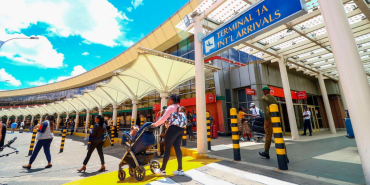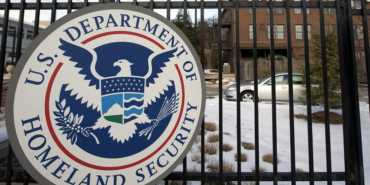Kenya to Launch Overseas Huduma Centers for Diaspora Services

The Kenyan government has announced plans to enhance access to e-Citizen services for its citizens living abroad.
This move aligns with President William Ruto's vision of decentralizing government service delivery. Prime Cabinet Secretary and CS for Foreign and Diaspora Affairs Musalia Mudavadi discloses that Huduma-like Centers will be established in various international capitals to serve the approximately 3.5 million Kenyans residing overseas. This initiative comes in response to concerns raised by Kericho Senator Aaron Cheruiyot, who lamented the difficulties faced by many Kenyans in the diaspora, particularly those in the United States, in accessing existing e-Citizen services.
As global mobility increases, the government recognizes the need for an effective system that allows Kenyans worldwide to access governmental resources and services without undue hardship. Mudavadi acknowledges that while many Kenyans can enjoy online government services, those living in foreign countries often face challenges. Currently, many individuals must travel long distances to embassies to access crucial services, leading to frustration and missed opportunities. To address this, the government is collaborating with other departments to establish "one-stop centres" where Kenyans living abroad can efficiently access the services they require.
In 2022, President Ruto created the State Department for Diaspora Affairs in a bid to address the needs of Kenyans living overseas. The push for digital transformation within government services has been a priority for President Ruto, who views digitization as crucial for eliminating inefficiency, corruption, and bias in service delivery. This initiative aims to streamline processes often marred by bureaucracy and improve accessibility, particularly for marginalized communities. Despite the e-Citizen portal offering around 50,000 government services, many Kenyans in the diaspora still face difficulties obtaining essential documents such as National Identity Cards.
Nairobi Senator Edwin Sifuna has voiced concerns about the State Department for Diaspora Affairs, questioning the allocation of resources to facilitate real change. Mudavadi candidly acknowledges the challenges facing the initiative, citing resource constraints as a key obstacle that has delayed the full realization of automated services. Addressing these issues will be crucial for the success of the government's strategy to support citizens abroad.
The new initiative comes at a time when more Kenyans seek opportunities abroad for reasons such as economic prospects, education, and the pursuit of better living conditions. As these trends develop, the government's commitment to improving the diaspora experience becomes increasingly essential. In addition to establishing services for Kenyans in the diaspora, there are calls for increased outreach and education about available online services. This would ensure that those abroad are aware of and can effectively navigate the e-Citizen platform.














Comments
Serve Kenyans in the…
Permalink
Serve Kenyans in the motherland first. Give them medicine and jobs. Diasporas know how to take care of themselves.
Add new comment